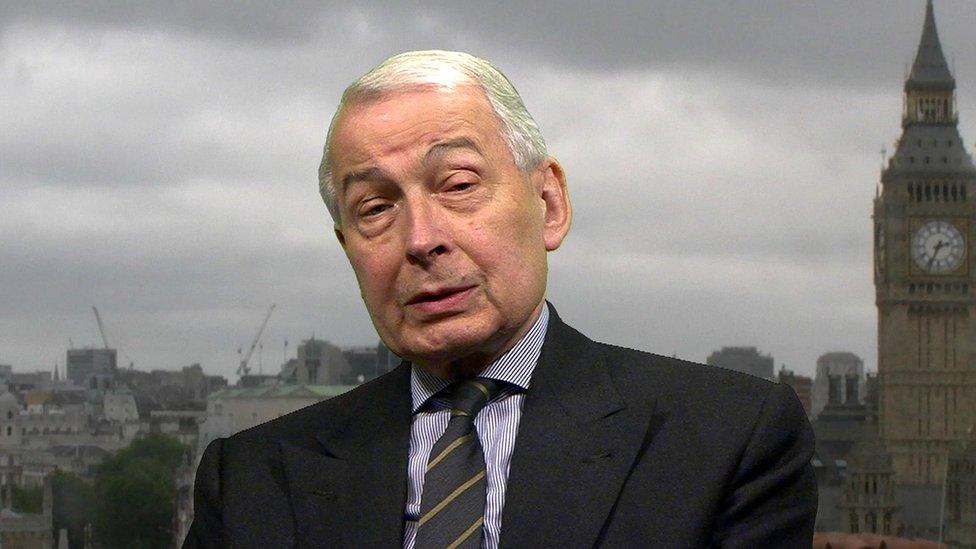Pensions regulator wants more powers to protect workers
- Published

Lesley Titcomb wants to safeguard remaining final-salary pensions
The Pensions Regulator is asking for new powers to stop final-salary pension schemes being dumped when companies are sold.
Lesley Titcomb would like firms with large pension deficits to be required to inform her if a sale is imminent and powers to intervene if necessary.
At the moment, companies do not have to inform the regulator before a sale.
The government says it is investigating whether tougher regulation is needed.
The risk to final-salary or defined-benefit schemes when a company is sold has come under the spotlight following the collapse of BHS.
The retail group went into administration shortly after being sold for £1 by former owner Sir Philip Green.
The pension scheme is reported to have a deficit of nearly £600m and is now likely to go into the pension's lifeboat, the Pension Protection Fund.
Workers who have not yet retired will get 90% of the pension they expected.
Stepping in
The regulator was criticised by the Work and Pensions select committee for failing to show urgency in dealing with the emerging crisis at BHS.
However, the body, which is funded by a levy from the UK's 6,000 defined benefit schemes, currently has no power to intervene in a sale.
The regulator can only take action once a deal has gone ahead, using her anti-avoidance powers to claim compensation if she thinks the purpose of the sale was to dump or reduce the pension liability.
Now Ms Titcomb has told the BBC the watchdog should be able to step in under certain circumstances.
"We may need new powers in certain situations," she said. "For example, where a company is being sold and the scheme is significantly underfunded, then it may be appropriate for the regulator to be told in advance about the transaction, and it may be appropriate for us to have the power to intervene in some way, which we don't have at the moment.
"There's no requirement to tell us. There's no requirement to come to us for clearance and we have no power to intervene if people do.
"The vast majority of employers comply with the law and do the right thing. What we want to tackle is the particular limited set of circumstances where, for example, a sale can go ahead without us being aware of it."
The Work and Pensions select committee is currently holding an inquiry into whether the regulator has adequate powers and the future of company pension schemes.

Frank Field thinks regulators could do more
Its chair, Frank Field, backs tougher legislation, but says the regulator needs to up its game.
"I would be surprised if the select committee doesn't move to a proposal that we have a much changed regulator who has the power for a period of time to say, 'You actually have to come to me before you can legally sell your company and it won't be legal unless I've signed it off,'" he said.
"But to do that, the pension regulator the way it behaves, its operation at speed and its attitude and culture has to change. The status quo can't remain."
A spokesperson for the Department of Work and Pensions said: "The vast majority of employers are managing their pension schemes responsibly, however this is an important issue and we are already investigating whether tougher regulation is needed."
You can hear more on this story on File on 4 on Radio 4 at 20:00 BST on Tuesday 11 November.
- Published9 October 2016

- Published25 July 2016

- Published2 June 2016

- Published25 April 2016
